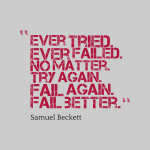SEO (Search Engine Optimization) Marketing is a method of generating passive traffic that attracts qualified eyeballs to your website day and night. The focus is to get multiple pages for multiple keyword searches above the fold on the first page of the search results (page rank). Great SEO equals more traffic and more sales. This is why good SEO should focus on revenue, not just rankings, because what is traffic if the visitors don’t dust off the old credit card and make a purchase?
This article is a little marketing 101 but as I’m blogging about a new business venture I thought it would be handy for anyone else looking to have their brand discovered or transact online.
Any channel, platform or tactic in marketing needs to have a positive ROI or you will bleed money. So like with all strategy tactics; you need to document specific objectives and ensure your success exceeds your expectations. Align your SEO with business objectives, marketing strategies, demographics of target audience, media mix, creative considerations, messaging, success metrics, industry segment, value proposition, offer, keyword selection and creative development.
If you have an existing website then you need to start with a site audit; looking at the site’s structure for any issues to ensure that the Google-bots love crawling, indexing and ranking it. Going through the process of review, covers:
- Links
- Sitemaps
- Robots.txt
- Use of Flash: Is there use of Flash that might prevent content and pages from being crawled and indexed?
- Content behind login barriers
- Canonicalisation
- Duplicate content
- On page optimization
- Page titles
- Metadata
- Content
- Keyword usage
- Use of headings, bolding etc.
- Image optimization
- Contextual linking
By formulating all the information above you will end up with a detailed action list that if executed well, will result in more money, ching-ching. The implementation stage consists of:
- keyphrases optimisation
- Web server analysis
- Keyphrase research and implementation
- Meta tag creation (Title & description)
- Creation of robots.txt file
- Creation & registrations of sitemap.xml
- Link building
- Social signals
- Google+ business profile setup/optimization
- DMOZ submission
- Information architecture
- Google Analytics setup w/ conversion tracking
- Google Analytics traffic analysis
- Local search optimization
- Setup of website sitemap
- Alternate text added to images
- Custom 404 error page setup
- Copywriting
- Ongoing monthly keyword reporting
- Ongoing monthly traffic & goal reporting
- Google +1
- Facebook Insights
- Canonicalization analysis
- Competitor intelligence report
- Internal linking restructuring
- Header Tags Optimized (H1, H2 etc)
- Ongoing duplicate content analysis
- Keyword rank checking
- Etc
In my specific situation, the SEO strategy is for a new business (TGC) an ecommerce portal that is still in wireframe status. Therefore a great place to start is with keyword research and analysis. This is the catalyst for the beginnings of competitor analysis, site design, early stage sitemap creation, ad copy for SEO, ad copy for all marketing, link building strategy and if done with “your white hat on”, everything that will help you get in bed with the constantly changing Google algorithm. It all boils down to relevant, contextual content based on words, keywords.
As a summary, SEO is simple, it’s the process of affecting the visibility of a website or a web page in a search engine’s un-paid search results. In general, the earlier (or higher ranked on the search results page), and more frequently a site appears in the search results list, the more visitors it will receive from the search engine’s users. SEO may target different kinds of search, including image search, local search, video search, academic search, news search and industry-specific vertical search engines.
As an Internet marketing strategy, SEO considers how search engines work, what people search for, the actual search terms or keywords typed into search engines and which search engines are preferred by their targeted audience. Optimizing a website may involve editing its content, HTML and associated coding to both increase its relevance to specific keywords and to remove barriers to the indexing activities of search engines. Promoting a site to increase the number of backlinks, or inbound links, is a vital tactic.
Dominic Byrne



